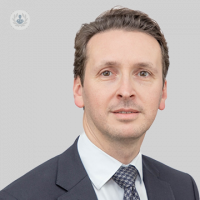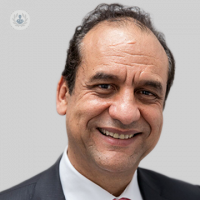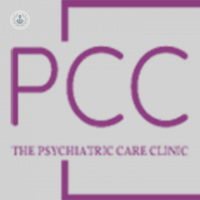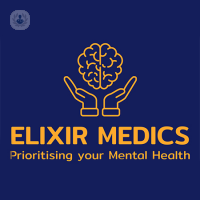What is stress?
Stress is often defined as the way you feel when you are under a great deal of pressure. This can be work pressure, pressure within the family, money problems, or relationship stress, or it can be a cumulation of more than one of these things.
Stress is normal, and is the body’s reaction to a situation, especially one that requires a physical, mental or emotional response. Stress is the natural response the body creates when it feels under attack, and can be known as ‘fight or flight mode’. It can be a positive thing as it heightens reactions, boosts energy, and increases cognitive function. However, too much stress can cause negative effects.

What are the symptoms of stress?
On a physical level, stress can cause an adrenaline release which, as previously mentioned, can be useful in a fight or flight situation, but is not so much use in a work environment. The build-up of unused adrenaline can cause:
- headaches
- nausea
- indigestion
- weight gain
It can also lead to heart attack and stroke in the long term, as the cardiovascular system is put under more pressure.
Alongside the physical effects, stress or the causes of stress can have many emotional effects, including:
- anxiety
- depression
- frustration
- anger
- fear
These negative emotions only serve to exacerbate the stress, like a cycle. Stress can then cause you to behave differently, such as:
- affecting your sleep patterns, leaving you more tired
- causing indecisiveness
- causing you to become withdrawn or irritable
- affecting your sex drive
- even causing you to be aggressive when you wouldn’t usually be
One severe type of stress, known as post-traumatic stress disorder (PTSD), develops following a traumatic event.
How can stress be treated?
Stress can't always be treated, but there are a number of ways that you can try and manage it.
If your stress is related to being overwhelmed by work, there are a number of time management techniques you can use to manage your time more effectively, giving you more time for the things that are important. The same applies for issues with prioritising your work.
Mindfulness is a technique of you can learn to be more aware of your own cues that you are beginning to feel over stressed, and what to do to alleviate the stress at that moment. Identify the causes of stress, and work out ways of finding a solution to the source of the stress.
Deep breathing when you are beginning to feel overwhelmed is a good way of helping to reduce your blood pressure. You can begin with a deep breath, and concentrate on slowing your breathing. If you begin to feel more relaxed, you can return to the task at hand.
Taking a five minute time out can also help if you begin to feel angry in a situation.
If you are having trouble managing your stress, there are specialists who can better help you with stress, and the causes of stress.
05-30-2013 07-01-2024Stress
Dr Stefania Bonaccorso - Psychiatry
Created on: 05-30-2013
Updated on: 07-01-2024
Edited by: Carlota Pano
What is stress?
Stress is often defined as the way you feel when you are under a great deal of pressure. This can be work pressure, pressure within the family, money problems, or relationship stress, or it can be a cumulation of more than one of these things.
Stress is normal, and is the body’s reaction to a situation, especially one that requires a physical, mental or emotional response. Stress is the natural response the body creates when it feels under attack, and can be known as ‘fight or flight mode’. It can be a positive thing as it heightens reactions, boosts energy, and increases cognitive function. However, too much stress can cause negative effects.

What are the symptoms of stress?
On a physical level, stress can cause an adrenaline release which, as previously mentioned, can be useful in a fight or flight situation, but is not so much use in a work environment. The build-up of unused adrenaline can cause:
- headaches
- nausea
- indigestion
- weight gain
It can also lead to heart attack and stroke in the long term, as the cardiovascular system is put under more pressure.
Alongside the physical effects, stress or the causes of stress can have many emotional effects, including:
- anxiety
- depression
- frustration
- anger
- fear
These negative emotions only serve to exacerbate the stress, like a cycle. Stress can then cause you to behave differently, such as:
- affecting your sleep patterns, leaving you more tired
- causing indecisiveness
- causing you to become withdrawn or irritable
- affecting your sex drive
- even causing you to be aggressive when you wouldn’t usually be
One severe type of stress, known as post-traumatic stress disorder (PTSD), develops following a traumatic event.
How can stress be treated?
Stress can't always be treated, but there are a number of ways that you can try and manage it.
If your stress is related to being overwhelmed by work, there are a number of time management techniques you can use to manage your time more effectively, giving you more time for the things that are important. The same applies for issues with prioritising your work.
Mindfulness is a technique of you can learn to be more aware of your own cues that you are beginning to feel over stressed, and what to do to alleviate the stress at that moment. Identify the causes of stress, and work out ways of finding a solution to the source of the stress.
Deep breathing when you are beginning to feel overwhelmed is a good way of helping to reduce your blood pressure. You can begin with a deep breath, and concentrate on slowing your breathing. If you begin to feel more relaxed, you can return to the task at hand.
Taking a five minute time out can also help if you begin to feel angry in a situation.
If you are having trouble managing your stress, there are specialists who can better help you with stress, and the causes of stress.


Managing the stress - tinnitus/tinnitus - stress cycle
By Professor Mahmood Bhutta
2024-11-21
Tinnitus isn't necessarily the damaged caused, it's when it's triggered long after that occurred. And that trigger can be stress. Then, of course, tinnitus can lead to stress. So, a frustrating cyclical issue can arise. Leading ENT specialist Professor Mahmood Bhutta tells us all about the tinnitus - stress/stress - tinnitus cycle, and what's involved in managing it in this informative article. See more


Situational syncope: why do we faint under stress?
By Dr Boon Lim
2024-11-21
If you faint at the sight of blood or needles or from standing up for long periods, you are someone that experiences situational syncope. This is temporary loss of consciousness in response to a certain trigger or situation that causes you stress. Award-winning cardiologist, Dr Boon Lim, explains what is happening to our bodies when we faint, how it can be avoided and offers some tips to help you cope when you feel a syncope episode coming on. See more


All about mixed anxiety and depressive disorder
By Dr Iqbal Mohiuddin
2024-11-21
Mixed anxiety and depressive disorder, when individuals experience symptoms of both anxiety and depression, can be a challenging diagnosis. This is because these symptoms can impact daily life in differing ways. It’s the most common mental health condition in the UK, affecting 7.8 per cent of the population. Leading consultant psychiatrist Dr Iqbal Mohiuddin answers some frequently-asked questions about this condition. See more


Building resilience: Managing stress and burnout
By Dr Jaime Jonsson
2024-11-21
It's common to experience stress in our daily lives. However, when stress becomes overwhelming and persists over time, it can lead to a state known as burnout. Here, Dr Jaime Jonsson, renowned consultant clinical psychologist, provides her expert insight into stress and burnout, along with their causes, impacts on health, and available treatment. See more
Experts in Stress
-
Dr Justin Sauer
PsychiatryExpert in:
- Bipolar disorder
- Stress
- Work stress
- Depression
- Anxiety
- Dementia
-
Dr Andy Zamar
PsychiatryExpert in:
- Bipolar disorder
- Depression
- ADHD
- Post-traumatic stress disorder (PTSD)
- Premature ejaculation
- Stress
-
Dr Julius Bourke
PsychiatryExpert in:
- Chronic pain
- Neuropsychiatry
- Anxiety
- Depression
- Stress
- Chronic fatigue
-
Dr Sarah Crawford
PsychologyExpert in:
- Anxiety
- Borderline personality disorder
- ADHD
- Dialectical behaviour therapy (DBT)
- Cognitive behavioural therapies
- Stress
-
Dr Sunil Raheja
PsychiatryExpert in:
- Stress
- Depression
- Coaching (personal development)
- Burnout
- Family therapy
- Adult psychiatry
- See all

The Psychiatric Care Clinic
The Psychiatric Care Clinic
85 Wimpole Street, London, W1G 9RJ
No existe teléfono en el centro.
By using the telephone number provided by TOP DOCTORS, you automatically agree to let us use your phone number for statistical and commercial purposes. For further information, read our Privacy Policy
Top Doctors

77 Wimpole Street
77 Wimpole Street
77 Wimpole Street, London. W1G 9RU
No existe teléfono en el centro.
By using the telephone number provided by TOP DOCTORS, you automatically agree to let us use your phone number for statistical and commercial purposes. For further information, read our Privacy Policy
Top Doctors

Elixir Medics
Elixir Medics
Start Hill
No existe teléfono en el centro.
By using the telephone number provided by TOP DOCTORS, you automatically agree to let us use your phone number for statistical and commercial purposes. For further information, read our Privacy Policy
Top Doctors
-
The Psychiatric Care Clinic
85 Wimpole Street, London, W1G 9RJ, Central LondonExpert in:
- Anxiety
- Depression
- Alcohol-related problems
- Psychosis
- Bipolar disorder
- Post-traumatic stress disorder (PTSD)
-
77 Wimpole Street
77 Wimpole Street, London. W1G 9RU, W1G Marylebone LondonExpert in:
- Homecare
- Cardiology
- Preventive cardiology
- Cardiovascular disease
- Respiratory diseases
- Hypertension
-
Elixir Medics
Start Hill, Bishop's StortfordExpert in:
- Anxiety
- Panic attacks
- Dementia
- Depression
- Psychosis
- See all
- Most viewed diseases, medical tests, and treatments
- School refusal
- Migraine
- Maternal mental health
- Joint pain
- Nutrition
- Weight loss injections
- Abdominal pain
- Bariatric surgery
- One Stop Breast Clinic
- Seizures








